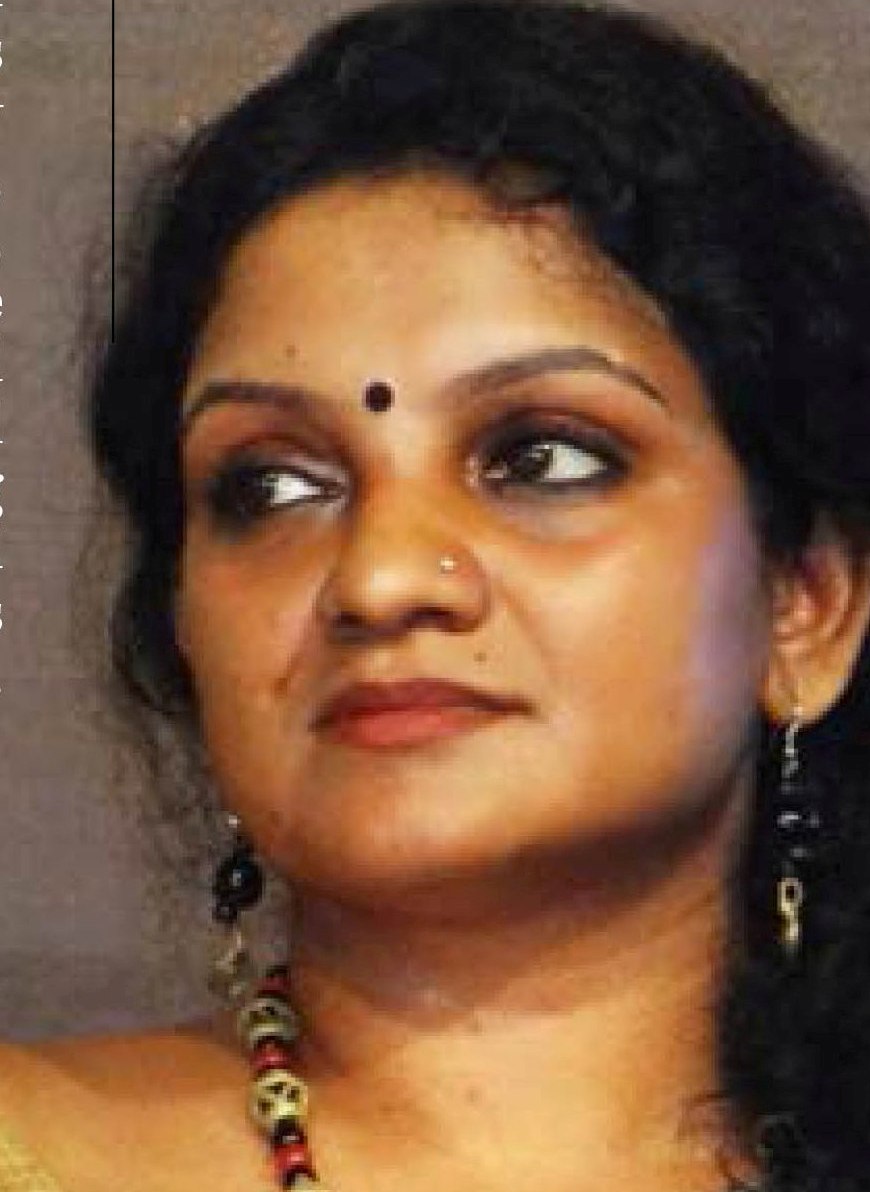A teacher, painter, and poet rolled into one, Babitha Justin’s areas of interests are often infused and inter-linked. As a teacher, she takes the role of a mentor and as a poet, a painter relates things more easily with an aesthetic vision. With a Ph.D. in travel writing and gender studies from the University of Hyderabad and M Phil in Art History and Aesthetics from the School of Languages, Jawaharlal Nehru University, New Delhi, she has been teaching literature and language at many colleges and universities across India. Signing-in different areas, her journey continues.
“As a youngster and teenager, I used to scribble a lot in my diary and notebook. But I never had the confidence and courage to come out with it. Then I focused on academics, as getting a job and researching had become my priorities” she says.
At 25, while doing a Ph.D. in Hyderabad Central University, she obtained a job as a lecturer at the Northeastern Hill University in Meghalaya. It was the metaphorical beginning of the very many journeys she was about to make professionally, personally and creatively.
She says, “Everything happened like a windfall, the beginning of a teaching career, a journey into a far off distant place, marriage, childbirth, and consequently, dealing with motherhood alone in a place and then, unable to cope with it, I left my child with my parents in Trivandrum. My husband too got a job in Kerala. I was alone in Meghalaya, with a handful of happy memories, and excellent picturesque abode to nurse my nostalgia and surrounded by loving people”. Still, she was flanked by irrepressible loneliness.
She continues, “There were no modes of entertainment other than reading and traveling, and eventually I sat down and wrote poems which I thought no one would read. My writings welled out of despair. Once when the renowned Indian English poet from Shillong, Robin Ngangom came to the campus, I sent him a poem rather apprehensively. He asked me to keep writing, and there began my poetic journey rather late, at 27”.
She adds, “When you ask about success stories from a poet, she can become one only if she reads widely. Poetry is not a genre that is very popular and English poetry, more so. As a poet writing in English, I am read in exclusive circles and appreciated there”.
Poetry and painting are complementary genres for her; she paints lines and colors into her writing and words into colorful strokes. It is synchronous and synaesthetic. At the appreciation level, the genres usually take two different planes. She observes “In the real world or the virtual world, I have seen visual art gaining more popularity over the printed world; This is also a peculiarity of a generation, the present day, caught in the diaphanous veil of the virtual reality, finding the audio-visual stimulations more appealing”.
Though beliefs in the old school of poetic hard work and toil, she writes her poems with impulse and spontaneity quite often revisit and prunes them whenever possible. She confesses that she does not wait for inspiration and agrees with her peers and gurus who have taught her that poetry is not spontaneity alone, but tedium as well, it is 95% sweat. It makes her want to write about anything and everything, which is good in a way, as it is an exercise in practicing writing. Poetry in social media is in fact triggered by certain sensational news and happenings. It can be a bomb blast, war footages, refugee problems, rapes, or any media highlighted atrocity. Poetry and the activism connected with it can indeed be political by waging war against such problems.
Thus poetry also makes something happen positively for a social cause. At the same time, instant popularity in writing about sensational and contemporary things should not divest poetry from a larger responsibility. A poet has to explore higher levels of honesty and discover manifold levels of truth which should transcend political and ideological buffers and comfort zone. She says, “I started writing at the time of social media. I was a blogger first and I was writing from my office room in a remote university with very poor connectivity. But I was happy that many people read my poems and followed me”.
Meanwhile, she sent her poems to poets like K. Satchidanandan and Jayanta Mahapatra. Both of them wrote back rather encouraging replies, and that was a morale booster. Then she started writing very often on Facebook. It was a platform that took her off because here is where she found and connected with the poetic community, peers and aspiring poets.
On the one hand, there was a lot of appreciation and fanfare, but on the other hand, she had to face the most debilitating feedback and criticism. Some hardcore poetry lovers ripped many of her poems apart, and she considers it rather constructive. Rather than being touchy about it, she tried to write more and more blending ideas, language and style. No, it is customary to post a poem first on FB, then a completely different form in print, after self-edits and formal editing.
With the advent of social media, she points out; we have a strong visible community of poets in Kerala. We have the poetic communes like the fortnightly Poetry Chain run by the poet Gopi Krishnan Kottoor, Kritya run by Rat Saxena to mention a few. She appreciates and enjoys the poems of English poets like Meera Nair, whose crisp poems are honest and candid, and they are rounded up with punch packed lines.
Chandini Suresh is another unsung versatile heroine, who writes with simplicity and immense poetic beauty. Her novels also speak to the heart and have the same quality of cascading into our hearts with ease. Other authors and critics like Suneetha Balakrishnan and Lekshmy Rajeev are also notable poets and writers who have contributed significantly to Indian Writing in English.
Once she came to Kerala and settled down here, she enjoys the comfortable cushions of having the support system of the family in place. She is most indebted to her sister and help, Sengchi, who is in charge of cooking and housekeeping a home. It provides her all the leisure she needs for writing and painting. “Without her, I wouldn’t have been what I am. My parents are writers themselves and great support and my husband is the person who reads and edits my primary draft before it goes in for further editing. My children, my pillars of strength, always have something critical to say about my paintings and I take their critiques seriously. My native place, Trivandrum, is a more than a place but a character within me, and soon I will be coming out with a novel on it,” she concludes with a smile.














